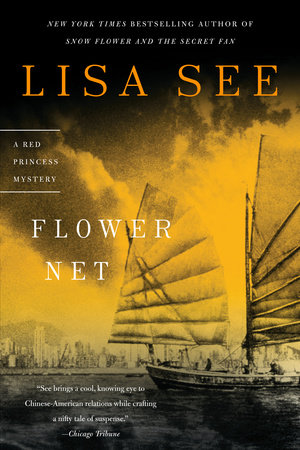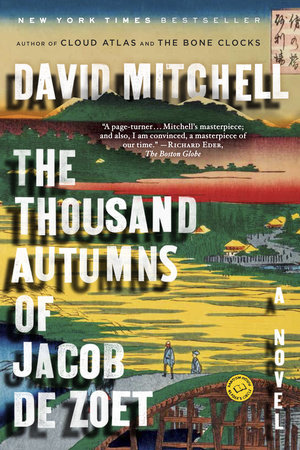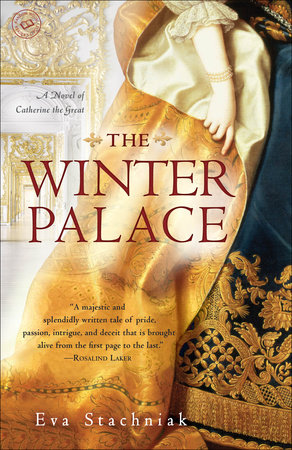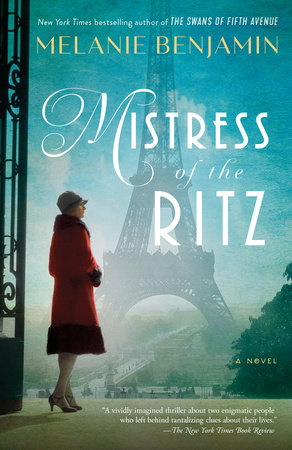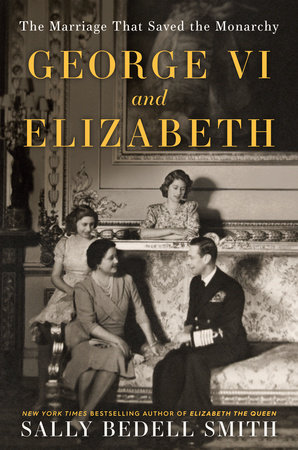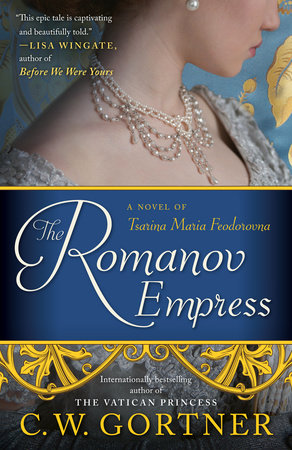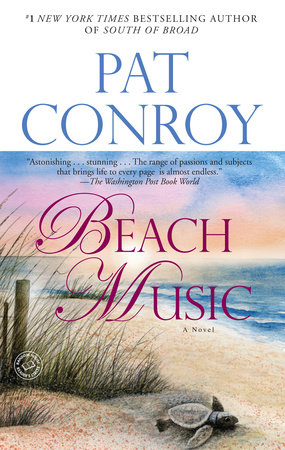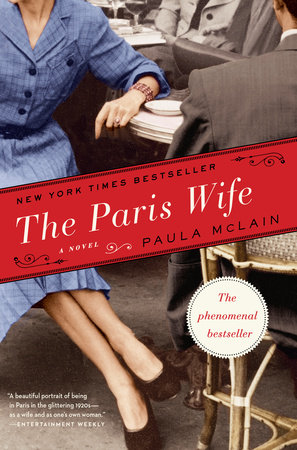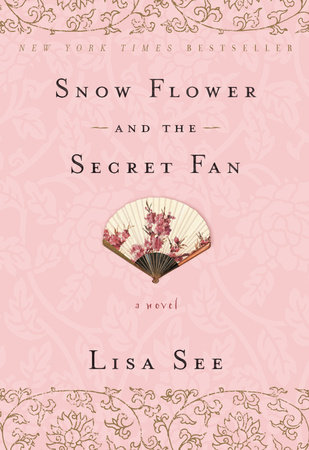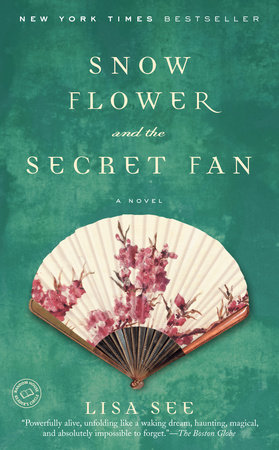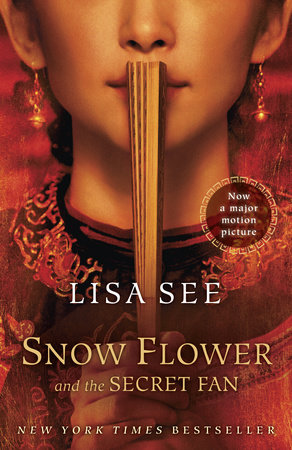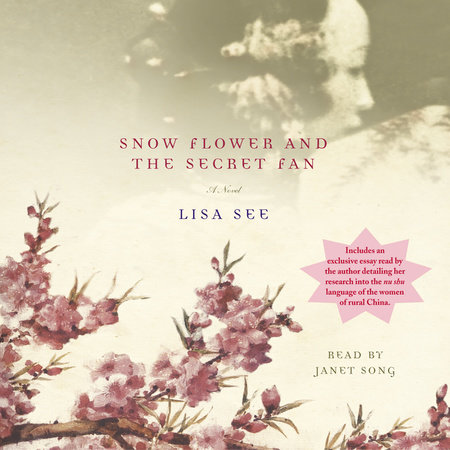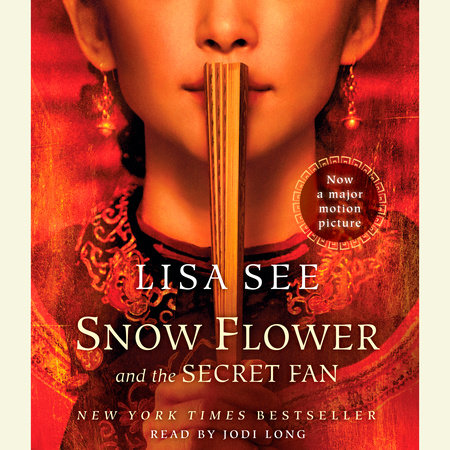A Conversation with Lisa See and Her Mother, Author Carolyn See
Carolyn See: What fun it’s going to be to get to ask you some questions about this wonderful new edition of Snow Flower and the Secret Fan! God knows, we’ve already had plenty of conversations about it–I’ll be so interested to see some of your answers in print. Although you’re a little young to have produced a masterwork, I think Snow Flower plainly is one. I’m so proud of you! (But then, I always am.)
You know how much I admire the service you did for the Chinese American community when you wrote On Gold Mountain, and I’m a huge fan of your thrillers. But Snow Flower is something different and far more profound. I’ve told you before, I think it compares to André Malraux’s Man’s Fate. It’s deep, honey! Tell me when, or even if, you first realized that Snow Flower was a different kettle of fish, that you were on to something really big.
Lisa See: I think of Snow Flower as part of a continuum, just the next step in my writing. On Gold Mountain was about my family, and very grounded in history. Snow Flower certainly has those same elements. At the same time, it’s very much a mystery. On page three you learn there’s a secret–a mystery, if you will–about what happened between Lily and Snow Flower, and the answer to it is hidden in the fan. That’s certainly the biggest mystery, but there are others, such as the truth of Snow Flower’s situation. I had to drop in clues for all of these things just as I did in my mysteries. What I’m saying is that I never could have written Snow Flower if I hadn’t written the other books first.
CS: Once, an interviewer asked each of us what our predominate, life-driving emotions might be. Without hesitation you answered, “Fear.” And yet you traveled alone, to the boondocks of China, sometimes on ox cart, for your research. How did you get up the nerve?
LS: I don’t think I’m unique in being fearful. Aren’t most of us driven by fear to some extent? The loss of a child, the death of a parent, the tragedies we go through with our friends are what all of us fear. And then there are the day-today fears: fear of failing, being rejected, public speaking, losing your job, the dark, or whatever. What matters is how we deal with fear, manage it, triumph over it. I’ll never do something like climb Mount Everest, but I do push myself to do things that scare me. However, going into the interior of China isn’t one of them. To me, China feels very familiar–like going to Chinatown or playing in my grandparents’ backyard when I was a kid.
At the most basic level, I think there are two types of fear: one physical, the other emotional. The physical stuff isn’t all that frightening–which is why physical torture isn’t particularly effective–but emotional fear is. I know a lot of writers get scared about how a book will be received and things like that. But to me, the real fear is going to dark places in the writing. Seventeenth-century Chinese women writers used to talk about “cutting to the bone” to write. I think there’s a lot of truth in that, and that’s the part that leaves me weak with fear. When I write something like Beautiful Moon’s death, Lily’s Letter of Vituperation and what it does to Snow Flower, and Snow Flower’s death, I’m experiencing and reliving my own losses and those that haven’t happened (and I hope never do). That process leaves me weak and depleted, so that by the end of writing Snow Flower I felt like I’d survived a terrible illness. And that’s another element of the fear I feel–the anticipation of the toll that going to these sad places will have on me. Put another way, I didn’t wake up in the morning and think, “Oh, goodie, I get to kill off Snow Flower today.” Writing her death put me back in the room watching my grandmother, our friend Harvard, and your John die.
CS: You’re one-eighth Chinese but you’ve said many times that you’re “Chinese in your heart.” You lived with me growing up, but I know your dad’s parents made a tremendous impression on you. Could you talk specifically of your wonderful grandmother Stella See? I have a hunch you picked up many of your storytelling skills from her.
LS: Did I? I thought I picked up my storytelling skills from you! I don’t remember my grandmother telling many stories, actually. What I remember most is her essence. She wasn’t Chinese (I got my red hair from her). She was very shy and fearful in many ways, but she also was filled with daring. She married a Chinese man when it was against the law. She lit out on a round-theworld trip with a couple of girlfriends when she was sixty-nine. She traveled through India third class. She was an adventurer and kind of wild in her own way, and yet she was afraid of so many things. She could be very blunt and earthy, but often she was afraid to finish a sentence. It was only when I was writing Peony in Love that I realized that a version of my grandmother has appeared in every book I’ve written. There’s a lot of her in Madame Wang (the matchmaker in Snow Flower), the neighborhood committee director in the mysteries, the grandmother in Peony in Love, and the mother-in-law in Shanghai Girls. Writing these fictional characters has allowed me to have my grandmother with me every day.
CS: So many blessings and surprises have come to you from Snow Flower. What was your favorite, or most unexpected, surprise?
LS: That anyone read the book in the first place. And after that I’d have to say that the posters in the Paris Métro for the French edition were pretty amazing. I have a photograph of one of them on my desk. It just knocks me out. Beyond that, I’ve been extremely touched by the emails I’ve received from all over the world from women (and men) of every age. I wrote about friendship and what happens when a friendship falls apart. I thought I was writing about something unique to me, but it turns out we’ve all been either dropped or have dropped someone. The feelings about that are deep and they last a lifetime.
CS: I’m sure you know that you reduced your sister Clara to raving hysterical tears when Beautiful Moon died, and after that the corpses piled up like cordwood–or like the unfortunate, double-crossed Communists in Man’s Fate. I’ve known you your whole life, dear one, and outside of a trying and taxing childhood (which as your mom I freely admit having been a party to), you appear, from the outside at least, to be an extremely fortunate woman! A wonderful husband, two darling sons, parents who admire you beyond words, a lovely home, a sparkling career. From where, then, this tragic sense of life?
LS: For all the goodness and all the blessings we have in life, there’s no getting around the fact that it’s ultimately tragic. All the people we love most in the world are going to die. We’re going to die! All we can hope is that it will be later rather than sooner, painless and not prolonged agony, that we will have loved and been loved and not die alone. I think a lot about the Chinese concepts of fate and fortune. Are they ordained? How much control do we have? Exactly how fickle is it? I also think about what Bob Dylan wrote: “When you got nothing you got nothing to lose.” Well, when you’ve got something, you’ve got everything to lose. I don’t mean losing a car, a house, or a job. The greatest losses are things we can’t even see or touch: love, devotion, admiration, dedication, loyalty, memories. You and I have lived in Southern California–a place plagued by earthquakes, fires, and floods–all our lives. I can’t even count how many times we’ve had to evacuate. But you only need to do it once to know that stuff is unimportant. The truly important things are what we carry in our hearts. This is what Lily had to learn. She started from nothing, gained everything, and then lost the one thing that was most important to her: love.
CS: Along this same line, you’ve often talked about the pain inherent in a mother-daughter relationship, both in Snow Flower and Peony in Love. The pain of footbinding, for instance, is endured by Lily, and inflicted by her mother, but experienced by both of them. The acculturation of women in almost every society involves a lot of suffering. How did this notion come to lodge in your mind? Was it because of your father’s profession?
LS: My dad’s an anthropologist, but that isn’t how I came to think about these things. I’m a woman, a daughter, and a mother. When I was a kid, I had very long hair. Remember what you used to say when you brushed it? “In order to be beautiful one must suffer.” That was coming from you–one of the most liberated, smart, and open people I know. These things are just so deep in every culture.
But what really interested me about footbinding was that it seemed so tied to the Chinese written character for mother love, which is composed of two elements: one part means love, the other part means pain. Of course, mother love is experienced in all cultures and through all times. I used to think that mother love is what daughters feel for their mothers–because they bind our feet, brush our hair, and nag us to clean our rooms, do our homework, get off the phone, and not stay out too late–but I’ve come to believe that mother love is really about what mothers feel for their children. Any pain or suffering our children feel–a fever or an earache as an infant, getting in with the wrong crowd in high school, failures in business or love once they’ve gone out into the world–we bear for them (whether they know it or not) and carry in our hearts.
CS: You describe in painful detail the footbinding process young girls had to go through. How did this tradition start? Rather than a removed historical account, yours was an intimate portrayal of this horrific process; was it difficult for you, as a researcher and writer, to investigate it?
LS: There are many theories about how the practice started. One of them is that there was a courtesan who used to wrap her feet when she danced. Obviously she wasn’t breaking her bones or else she wouldn’t have been able to dance. Nevertheless, it was said that she looked like she had little fox feet when she danced. She became hugely famous for this, and all the men wanted to see her. Pretty soon other courtesans were binding their feet. Now all the men wanted to see them. This resulted in a lot of wives saying the Chinese equivalent of “How am I going to get Harry to come home?” That’s how footbinding made the jump from the courtesan culture to the culture of fine upstanding women.
Footbinding wasn’t difficult to research. What was hard was putting myself in the room with Lily, Beautiful Moon, and Third Sister as they had their feet bound. I kept wondering how a mother could do that to her daughter. This question stayed with me. I wanted to look at footbinding from a mother’s point of view, which is what I did in Peony in Love.
CS: Were women forbidden to have female friends aside from their laotong, or sworn sisters? Was what made these bonds strong simply the societal importance associated with these relationships?
LS: A sworn sisterhood dissolved when girls were married out to other villages. In the most practical sense, how could they have friends and meet people if they had bound feet and were stuck in an upstairs women’s room for the rest of their lives? They couldn’t go out to meet other women. They couldn’t call each other on the phone or go out for coffee. They were pretty much stuck with the women in their husband’s household: their mothers-in-law, sistersin- law, and unmarried daughters. Once the children were grown or a woman became a widow, then she might join a late-life sworn sisterhood in her husband’s village, but that was relatively rare.
The laotong relationship was completely different. These women would be allowed to visit each other at certain prescribed times during the year and they could write to each other until one of them died. While it’s true that these relationships did have societal importance–they were tangible proof that a girl could be loyal, that she was literate in nu shu, and that her family was wealthy enough to share food and water with a stranger–these bonds were extraordinarily strong. I came to look at the laotong relationship like an emotional marriage, when actual marriage had very little emotion attached to it. This doesn’t mean that when little girls first met and signed their contracts to become laotong that they loved each other right away. It takes a long time to become true, deep-heart friends. And often it didn’t work out. This is why I have the chapter called “Love,” in which Lily woos and cultivates Snow Flower. Don’t we do that even now? We meet someone, see matinees together, go for walks, have lunch, and talk, talk, talk, hoping to become friends.
CS: Would there have been any recourse for a battered woman in Snow Flower’s position? Were there any outlets or resources a woman could turn to besides her laotong?
LS: Not that I know of. She couldn’t even go back to her natal family, because once married, she belonged to her husband’s family. After I finished writing Snow Flower, I watched a documentary about nu shu that was filmed a few years ago. In it there was a group of elderly sworn sisters. They were heartsick over one of their friends whose husband was beating her. They felt they had no way to help her and she had nowhere to go for help. Sadly, even in this country, battered women are often too afraid or too immobilized to seek help, even though we have all kinds of legal, emotional, and physical sources to prevent or end the cycle of abuse.
CS: Since a woman’s worth hinged on her ability to produce sons, what would have happened to a first wife who only had daughters, or who was barren? Were there issues of legitimacy for male heirs at that time and place?
LS: If a woman didn’t have sons, she could be sold into another marriage, be sent back to her parents (if they’d take her), or be discarded out onto the street. But as you suggest, men often took multiple wives or concubines. If one of these women had a son, then the first wife could adopt him as her own. He would become the first son, the one who inherited everything.
CS: This isn’t a very academic question, but Snow Flower and Lily enjoy–for a while–a very deep and intense friendship. Which one would you prefer to spend a day with, hang out with, as a friend? Or, better yet, go with to a weekend spa getaway where you could really talk?
LS: I think it would depend on if we were kids or adults. As a kid, I would have loved to hang out with Snow Flower, because she’s creative and brave. I have a feeling we would have gotten into all kinds of trouble. (And I haven’t thought of this until now, but in a strange way doesn’t Snow Flower remind you of my best friend from elementary school, Barbie Sloan, who got me to be much more adventurous and do things I never would have done otherwise?) On the other hand, as an adult, Snow Flower is so caught up in her emotions and all the bad things that are happening to her that by the second day at the spa I’d be thinking, Get me out of here! For me, she’s a little too caught up in her victimhood to be much fun.
I don’t think I would have liked Lily very much as a child. I don’t know if I’d want to spend a whole weekend with her as an adult, either, since she’s so stern and unforgiving. She’d probably be telling me to exercise more and eat spa food, when I’d want to lounge by the pool, eat hot fudge sundaes, and sip margaritas. (Okay, that’s disgusting! But we’re talking fantasy weekend here.) But if I could really get her to talk, I think she’d be fascinating. I’d like to peer into her darkness and regrets for a while. Doesn’t sound like much fun though, does it? I have a better idea. Why don’t the two of us go on that spa weekend and gossip about them instead?
CS: In Snow Flower and Peony, men certainly take a back seat as far as importance is concerned. And in the thrillers, your character David Stark, though morally sound and very, very cute, is definitely a little dimmer than the intrepid Red Princess Hulan. Would you care to comment?
LS: In the mysteries, which take place in contemporary China, Hulan is definitely more knowledgeable about things because she’s on her home soil, while David is the eyes and ears of the reader, discovering China for the first time. In Peony in Love,Wu Ren is the idealized object of Peony’s love. It takes her a long time to see, appreciate, and understand him as a real man–with strengths and weaknesses–and she learns a lot along the way because of that. This journey is central to the book.
Snow Flower is completely different. So often we hear about men objectifying women, but I think women objectify men too. For the bound-footed nu shu writers, who lived practically their entire lives in the upstairs women’s chambers, men were strange and unknowable. Think about how women would have experienced the men in their lives: A father looked at his daughter as worthless, as someone to feed until she married out to her “proper” family. Husbands and wives had little contact. (Marriage wasn’t like it is today, where we talk to each other about the house, the kids, work, finances, and politics.) Women were told to obey their sons, not the other way around. So how would women have looked at the fathers, husbands, and sons in their lives? Men would have seemed like creatures from another planet. I’m not endorsing that point of view. I’m just saying that’s how it was and I tried to capture that. There are many reasons that I’m glad I didn’t live in China in the past, and this is a major one.
CS: So if it’s not a secret, what are you working on now?
LS: I’m so glad that you asked this today, because just last night I finished Shanghai Girls! It’s about two sisters who leave Shanghai in 1937 to come to Los Angeles in arranged marriages. (We had a lot of arranged marriages in my family here in Los Angeles Chinatown, so I really know what life was like for them.) It’s got glamour, parties, great clothes, and plenty of heartache too. I wrote about best friends for life in Snow Flower, the three sister-wives in Peony in Love, and now sisters. Sisters, as you know, also have a unique relationship. This is the person who has known you your entire life, who should love you and stand by you no matter what, and yet it’s your sister who knows exactly where to drive the knife to hurt you the most. In some ways I would say that Shanghai Girls is my most personal book. I wanted to capture the people (and places) who are gone now, who meant so much to me, and who in many ways made me the person I am today.
CS: In addition to writing books, you’ve written the libretto for an opera and mounted museum shows. You serve as a Los Angeles city commissioner and sit on various boards, plus you’re a wife and mother. Why do you do all these things? Do they distract you from writing novels?
LS: Writers, as you know, tend to be solitary and shy. That’s why people become writers! There was a point about ten years ago when I realized that the only time I went outside during the day was to get the mail, pick up the kids, and do errands. I felt like I needed to connect to life beyond my imagination and the computer screen. This was not easy for me, but what I discovered–to my surprise–was that doing these other things made me a better writer. In writing the libretto, I learned the value of telling a story purely through the emotions of music. (Snow Flower is nothing if not operatic in its emotions.) In doing the museum exhibitions, I learned to tell a story in a purely visual way. (For example, I wanted to be right there with Lily and Snow Flower when they went to the Temple of Gupo: to feel the swaying of the palanquin, sort through the colors of embroidery thread, and taste the sugared taro dessert.) By doing community work, I’ve learned a lot about emotions and the connections between people. E. M. Forster wrote, Only connect. I’ve tried to take that idea– and all the things I’ve learned meeting people I wouldn’t have if I’d stayed glued to my computer–to create characters who are struggling with the same things I struggle with and that we all struggle with. For me, connecting has helped me realize the importance of home, family, friendship, love, despair, loss, failure, regret, and triumph not only on a deep personal level but as something I can bring to my writing.
